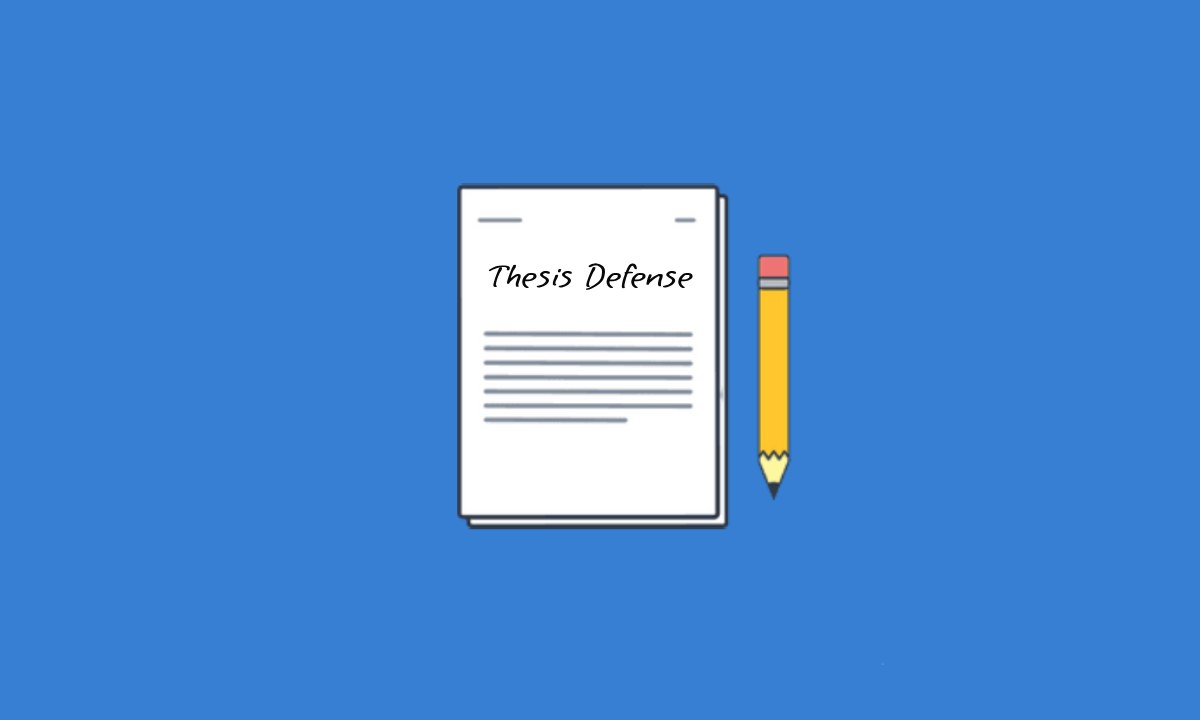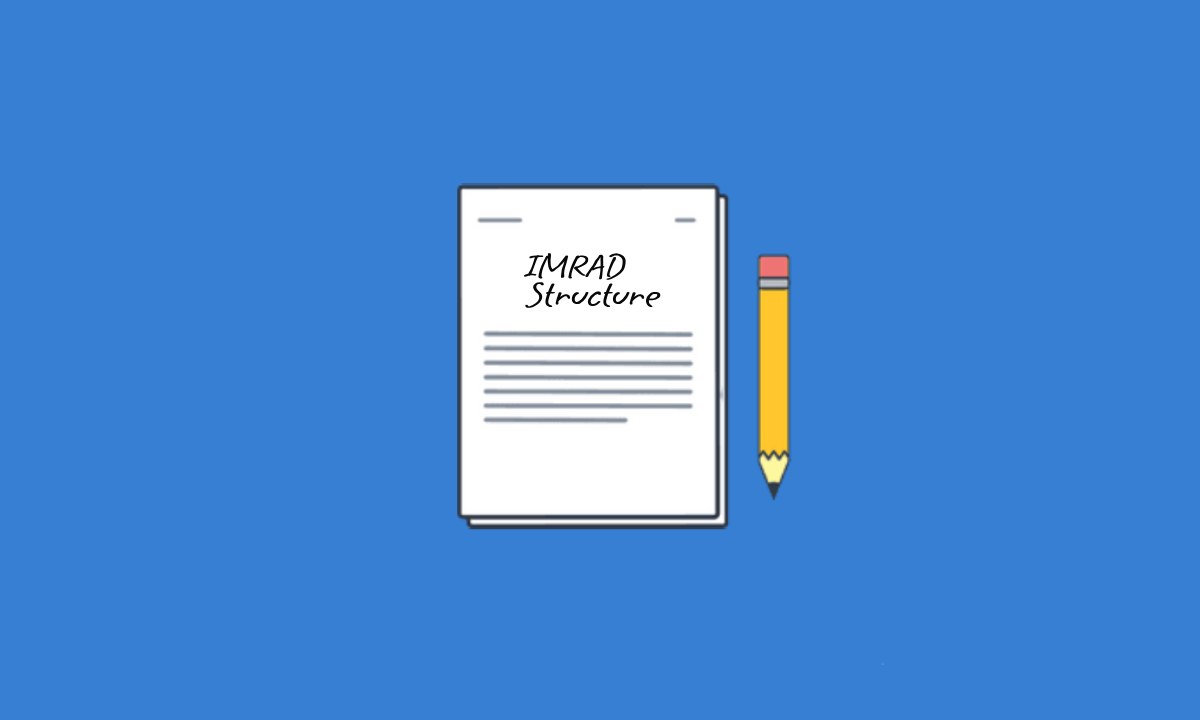What is Thesis Defense?
A thesis defense, also known as a viva voce or oral defense, is an academic event where a student presents their research work and findings to a panel of experts in their field. It typically marks the culmination of their graduate studies, especially at the master’s or doctoral level.
The purpose of the thesis defense is to assess the student’s mastery of their subject area, their ability to conduct independent research, and their capacity to defend their ideas and conclusions in an academic setting. If the defense is successful, the student may be granted their degree.
How to Do a Thesis Defense Presentation?
Preparing for a thesis defense presentation involves several key steps to ensure that you effectively communicate your research and findings to your audience. Here’s a general guide on how to do it:
Know your audience:
Understand who will be attending your defense. This will help you tailor your presentation to their level of expertise and interests.
Create a clear outline:
Structure your presentation logically with a clear introduction, methods, results, discussion, and conclusion. Make sure each section flows smoothly into the next.
Develop engaging slides:
Create visually appealing slides that support your key points. Use bullet points, graphs, charts, and images to illustrate your findings and make your presentation more engaging. Keep text to a minimum and focus on conveying your main ideas concisely.
Practice your delivery:
Rehearse your presentation multiple times to become familiar with the material and improve your delivery. Practice speaking clearly and confidently, and pay attention to your pace and tone of voice.
Anticipate questions:
Prepare for potential questions that you may receive during the Q&A session. Think about the strengths and weaknesses of your research and be ready to defend your work.
Seek feedback:
Ask your advisor, peers, or colleagues to review your presentation and provide feedback. Incorporate their suggestions to improve the clarity and effectiveness of your presentation.
Stay focused during the defense:
On the day of your defense, remain calm and composed. Start your presentation with a brief overview of your research and objectives. Speak clearly and confidently, and maintain eye contact with your audience. Be prepared to answer questions thoughtfully and respectfully, even if they are challenging.
Conclude with a summary:
Wrap up your presentation with a summary of your key findings and conclusions. Thank your audience for their time and attention, and invite further discussion or questions.
By following these steps and thoroughly preparing for your thesis defense presentation, you can effectively showcase your research and demonstrate your expertise in your field.
Thesis Defense Structure:
Structuring your thesis defense effectively is crucial for conveying your research findings and engaging your audience. Here’s a suggested structure for your defense presentation:
Introduction (5-10 minutes):
- Start with a brief introduction to yourself, including your name, academic program, and research topic.
- Provide an overview of your presentation structure to guide your audience.
- Clearly state your research objectives and the significance of your study.
Background and Literature Review (5-10 minutes):
- Summarize the background information and context of your research topic.
- Review relevant literature and theories that informed your research.
- Highlight gaps or unresolved issues in the existing literature that your research addresses.
Research Methodology (10-15 minutes):
- Describe your research design, including the research approach (qualitative, quantitative, or mixed methods), data collection methods, and sampling strategy.
- Discuss any ethical considerations and measures taken to ensure the validity and reliability of your data.
- Explain how you analyzed the data and interpreted the results.
Results and Findings (15-20 minutes):
- Present your main research findings, organized according to your research questions or hypotheses.
- Use visual aids such as graphs, charts, or tables to illustrate key findings.
- Provide a clear and concise interpretation of the results, emphasizing their relevance to your research objectives.
Discussion and Implications (15-20 minutes):
- Analyze and interpret your findings in relation to existing literature and theoretical frameworks.
- Discuss the implications of your findings for theory, practice, and future research.
- Address any limitations or constraints of your study and their impact on the validity and generalizability of your results.
Conclusion (5-10 minutes):
- Summarize the main conclusions of your research and how they contribute to the field.
- Reflect on the significance and broader implications of your study.
- Highlight any recommendations for future research or practical applications.
Questions and Answers (15-30 minutes):
- Invite questions from the examining committee and audience members.
- Respond to questions thoughtfully, demonstrating your knowledge and understanding of your research.
- Be prepared to defend your research methodology, findings, and interpretations.
Closing Remarks (2-5 minutes):
- Thank your audience, examining committee, and advisor for their time and feedback.
- Express gratitude to any collaborators, funders, or participants who contributed to your research.
- Reiterate the importance of your research and your enthusiasm for future endeavors in the field.
- Adhering to this structure will help you deliver a coherent and engaging thesis defense presentation, effectively communicating the significance of your research and demonstrating your expertise in your field.
Common Thesis Defense Questions
During a thesis defense, you can expect a wide range of questions from your examining committee. These questions typically cover various aspects of your research, methodology, results, and conclusions. Here are some common thesis defense questions:
Introduction and Background:
- Can you provide an overview of your research topic?
- What motivated you to pursue this research?
- How does your research contribute to the existing body of knowledge in your field?
Research Methodology:
- What research methods did you use, and why?
- Can you justify your choice of research design?
- How did you ensure the validity and reliability of your findings?
Results and Analysis:
- What were the main findings of your study?
- Can you explain any unexpected results?
- How do your results support or challenge existing theories or hypotheses?
Discussion and Interpretation:
- What are the implications of your findings?
- How do your results fit into the broader context of your field?
- What are the limitations of your study, and how do they affect the interpretation of your results?
Conclusion and Future Directions:
- What are the main conclusions of your research?
- How do you propose to build on this research in the future?
- Are there any unanswered questions or areas for further investigation?
Critical Thinking and Reflection:
- What alternative explanations or interpretations did you consider?
- How did you address potential biases or limitations in your study?
- What would you do differently if you were to conduct this research again?
Contributions and Significance:
- What is the significance of your research in the broader context of your field?
- How does your research advance our understanding of the topic?
- What practical applications or implications does your research have?
Personal Reflection and Growth:
- What did you learn from conducting this research?
- How has this research influenced your perspective or career trajectory?
- What advice would you give to other researchers working in this area?
These are just examples, and the actual questions you receive may vary depending on your specific research topic, methodology, and the interests of your examining committee.
Thesis Defense Tips:
Below are some tips to help you ace your thesis defense:
Know Your Limits: While it’s important to be well-prepared, remember that you don’t need to know everything. Focus on your research and be ready to discuss it thoroughly, but don’t feel like you have to be an expert in every tangential topic.
Stay Organized: Keep all your materials organized and easily accessible. This includes your presentation slides, notes, research papers, and any other relevant documents. Being organized will help you feel more confident and reduce stress on the day of your defense.
Practice Answering Questions: Enlist the help of friends, family, or colleagues to conduct mock defense sessions. Practice answering both expected and unexpected questions to improve your ability to think on your feet.
Pay Attention to Body Language: Your body language can convey confidence and professionalism. Maintain eye contact with your audience, stand tall, and avoid fidgeting. Confident body language can help you feel more assured and make a positive impression on your committee.
Be Concise: When answering questions, aim for clarity and conciseness. Avoid rambling or going off on tangents. If you need a moment to gather your thoughts, it’s okay to pause briefly before responding.
Set Time Limits: Practice your presentation within the allotted time frame. Aim to cover all key points without rushing or exceeding the time limit.
Respectful Engagement: Even if you disagree with a committee member’s feedback or question, remain respectful and professional in your response. Engage in a constructive dialogue rather than becoming defensive.
Dress Professionally: Choose attire that reflects the formality of the occasion. Opt for professional attire such as business casual or formal wear, depending on the norms of your academic institution.
Practice Relaxation Techniques: Incorporate relaxation techniques such as deep breathing, visualization, or mindfulness meditation to manage pre-defense nerves. Practice these techniques regularly to build resilience against anxiety.
Stay Hydrated and Rested: Ensure you get a good night’s sleep before your defense and stay hydrated on the day of. Being well-rested and hydrated can help you maintain focus and clarity during the defense.
Expect the Unexpected: No matter how well-prepared you are, unexpected challenges may arise during your defense. Stay adaptable and maintain a positive attitude, even if things don’t go exactly as planned.
Review Previous Defenses: If possible, attend other students’ thesis defenses to get a sense of what to expect. Observing how others handle the process can provide valuable insights and help alleviate some of your own apprehensions.
Believe in Yourself: Finally, have confidence in your abilities and the work you’ve done. Remember that your thesis defense is a culmination of years of hard work and dedication. Trust in your preparation and trust in yourself to succeed.
By following these tips and staying focused, you’ll be well-equipped to tackle your thesis defense with confidence and poise.
Thesis Defense Introduction Speech Sample
Here’s a sample introduction speech for a thesis defense:
Good [morning/afternoon/evening], esteemed members of the examining committee, respected faculty, fellow students, and guests. My name is [Your Name], and it is with great pleasure and a hint of nervous excitement that I stand before you today to present and defend my thesis entitled “[Your Thesis Title].”
Before I delve into the details of my research, I would like to take a moment to express my sincere gratitude to everyone who has supported me throughout this journey. Firstly, I am deeply thankful to my advisor, [Advisor’s Name], for their invaluable guidance, encouragement, and unwavering support. Their expertise and mentorship have been instrumental in shaping the direction and quality of my research.
I would also like to extend my gratitude to the members of my examining committee for their time and expertise in evaluating my work. Your insightful feedback and constructive criticism have been indispensable in refining my thesis and strengthening its scholarly merit.
Furthermore, I am indebted to my family and friends for their unwavering belief in me and their unconditional support, especially during the challenging moments of this academic endeavor. Your encouragement has been a constant source of motivation, and I am profoundly grateful for your presence here today.
Now, turning to the essence of my thesis, [Your Thesis Title], I embarked on this research journey with the aim of [briefly state your research objectives]. In the course of my investigation, I have explored [briefly mention the key aspects or themes of your research].
Throughout this presentation, I will outline the background and context of my research, elucidate the methodology employed, present the main findings, discuss their implications, and conclude with reflections on the significance of my research contributions.
I am honored to have the opportunity to share my research findings with you today and engage in a scholarly dialogue on the subject matter. I am eager to receive your feedback, insights, and questions, which will undoubtedly enrich the discourse and contribute to the advancement of knowledge in our field.
Without further ado, I invite you to join me on this intellectual journey as we explore the intricacies and implications of [Your Thesis Title]. Thank you for your attention, and I look forward to our fruitful discussion.



